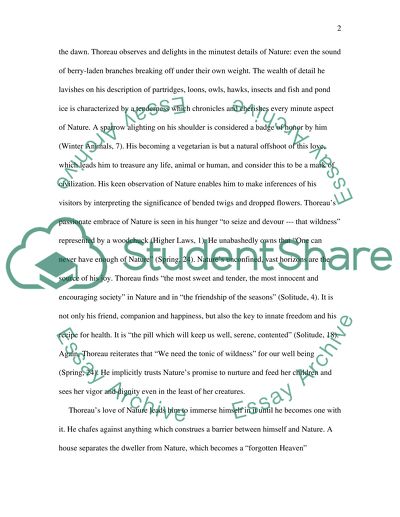Cite this document
(Walden: Thoreaus Spiritual Vision of Unity with Nature and the Assignment, n.d.)
Walden: Thoreaus Spiritual Vision of Unity with Nature and the Assignment. Retrieved from https://studentshare.org/literature/1539424-english-walden-by-henry-david-thoreau
Walden: Thoreaus Spiritual Vision of Unity with Nature and the Assignment. Retrieved from https://studentshare.org/literature/1539424-english-walden-by-henry-david-thoreau
(Walden: Thoreaus Spiritual Vision of Unity With Nature and the Assignment)
Walden: Thoreaus Spiritual Vision of Unity With Nature and the Assignment. https://studentshare.org/literature/1539424-english-walden-by-henry-david-thoreau.
Walden: Thoreaus Spiritual Vision of Unity With Nature and the Assignment. https://studentshare.org/literature/1539424-english-walden-by-henry-david-thoreau.
“Walden: Thoreaus Spiritual Vision of Unity With Nature and the Assignment”. https://studentshare.org/literature/1539424-english-walden-by-henry-david-thoreau.


